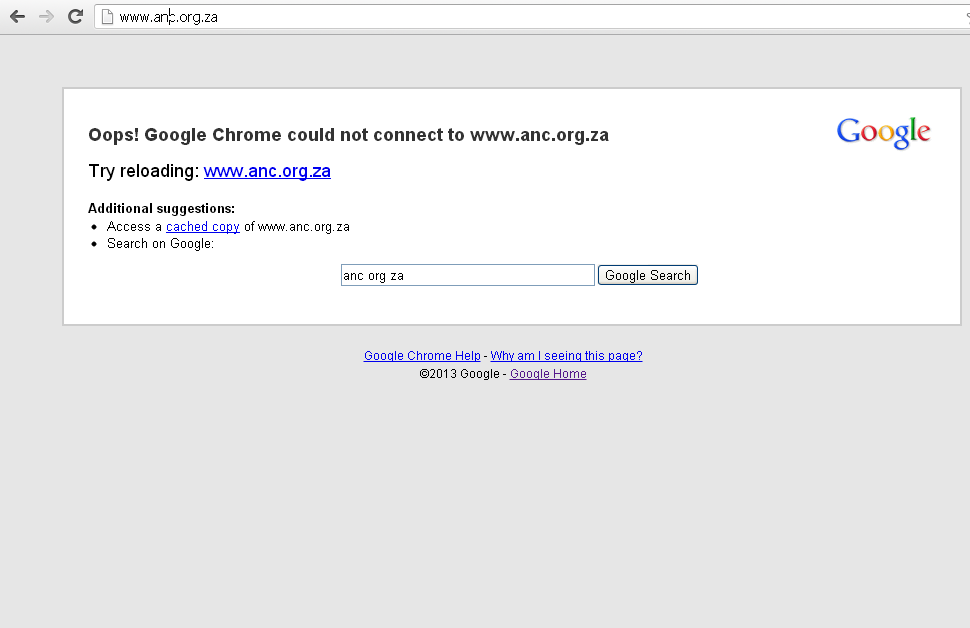Hackers Anonymous Africa target ANC website
Hackers Anonymous Africa target ANC website

A hacker group has attacked the website of South Africa’s ruling political party, the African National Congress (ANC).
The group, which calls itself ‘Anonymous Africa’, has posted on its Twitter account @zim4thewin that it has disrupted the ANC government’s website anc.org.za with what it calls a “tsunami ddos”.
According to searchsecurity.techtarget.com, “a distributed denial-of-service (DDoS) attack is one in which a multitude of compromised systems attack a single target, thereby causing denial of service for users of the targeted system.”
Earlier this week Anonymous Africa targeted websites belonging to South African news portal IOL, Zimbabwean newspaper The Herald and Zimbabwe’s ruling party Zanu-PF. Attacks on these websites resulted in them briefly being inaccessible. However, at the time of writing, these websites are back up and running.
Anonymous Africa says it targeted the likes of the Zanu-PF website “in response for the 20,000 Ndebele” the Zimbabwean government has allegedly “slaughtered”. The group says it also targeted South Africa’s IOL website for allegedly “ignoring the genocide against the Ndebele people” in Zimbabwe.
The attack on the IOL website followed an opinion piece that was published by The Sunday Independent, in which the author came out in support of Zimbabwean president Robert Mugabe.
IOL has since said the targeting of its website was not justified as it has the right to publish a plurality of views in South Africa..
But Anonymous Africa has now turned its attention to South Africa’s ANC.
“Ladies, gentleman and secret agents. today we shall be hitting one of the biggest enablers of the mass murdering mugabe. the ANC in 50 min,” Anonymous Africa tweeted at 9.20am South African time today.
Following that tweet at 10am South African time, Anonymous Africa tweeted, "anc.org.za is tango down! for being corrupt and supporting the mass murdering mugabe."
At the time of writing, the ANC website is not operational.
